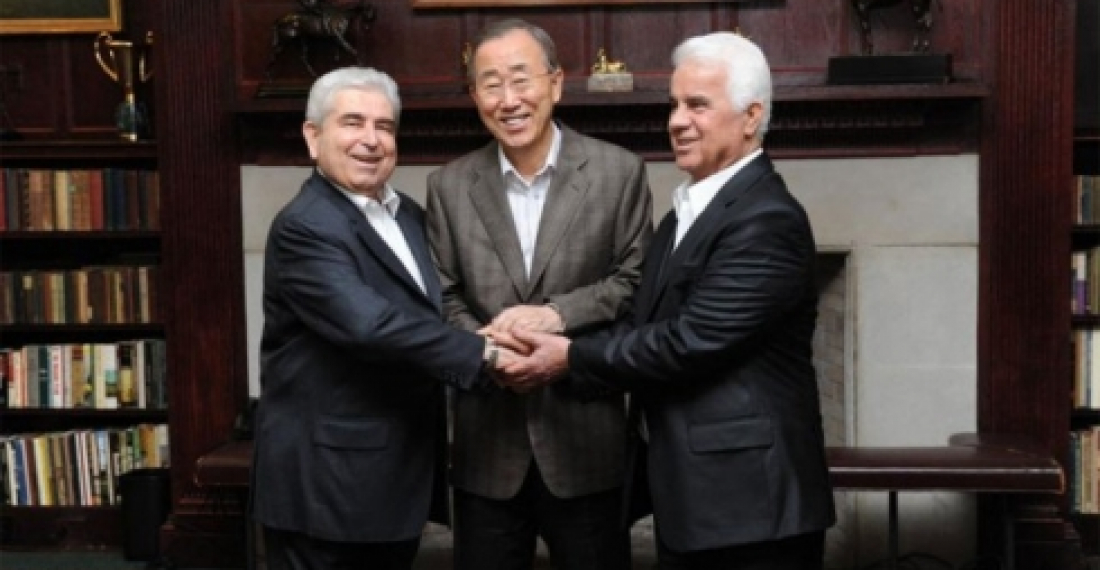UN Secretary-General Ban Ki-moon has stated that not sufficient progress has been made during talks between Greek and Turkish Cypriot leaders to justify calling an international conference aimed at consoilidating a peace deal as had been hoped.
Ban's spokesman made the announcement Saturday afternoon following the secretary-general's meeting Friday with Alexander Downer, the UN special adviser on Cyprus, and telephone calls earlier Saturday with Greek Cypriot leader Dimitris Christofias and Turkish Cypriot President Derviş Eroğlu.
Cyprus was split in 1974 when Turkey intervened after a coup by supporters of union with Greece. Turkish Cypriots declared an independent state in the north in 1983, but only Turkey recognises it and keeps 35,000 troops there.
Ban has been pressing the two leaders to reach a settlement, and Downer said last month he had planned to call an international conference by early May, bringing together Britain, Greece and Turkey with the aim of putting the finishing touches on an accord.
But Downer said the two sides have not yet converged closely enough on key issues. He said talks are stalled on how executive power would be shared under an envisioned federation and on how to deal with private property lost during the intervention.
Ban's spokesman said that on the basis of the meeting with Downer on Friday, "the secretary-general shared his assessment that there is not the sufficient progress on core issues that would provide a basis for calling an international conference at this time."
Greek Cyprus joined the EU in 2004, but only the south enjoys membership benefits. Turkey, a candidate for EU membership, doesn't recognize Greek Cyprus as a sovereign country and has threatened to freeze its relations with the bloc if the island takes over the presidency before a reunification accord is reached. Long-running negotiations to reunify divided Cyprus will likely halt in July, when Greek Cyprus takes over the European Union's six-month rotating presidency. Alexander Downer, the UN Special Adviser on Cyprus, earlier said Turkish Cypriots believe negotiations during that period would be "meaningless" since Christofias would be preoccupied with EU matters.
Numerous rounds of UN mediated peace talks over four decades have led nowhere. The latest round, which began amid high hopes in 2008, has achieved limited progress, and both sides have begun blaming each other for the impasse.
Diplomats have expressed disappointment that yet another opportunity to resolve the Cyprus problem has been lost due to the intansigence of leaders who do not seem to have the moral authority within their societies to take forward a peace deal around which their is broad consensus, hiding instead behind problems of detail. The matter is of serious concern also to the European Union that has struggled to deal with the difficulty of having a divided country as one of its members.
source: commonspace.eu with agencies
photo: UN Secretary General Ban Ki-Moon with Greek Cypriot leader Christofias and Turkish Cypriot leader Eroglu at talks in New York earlier this year (archive picture courtesy of the UN)







